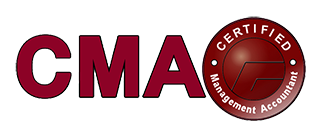COURSE 2: STRATEGIC COST MANAGEMENT
Objectives: This is an advanced level course that covers the role of the management accountant in complex modern industrial organizations within which the various facets of decision-making and controlling operations take place. The course includes the discussion of management control systems, costing systems and activity-based costing, activity management, and implementation issues in modern costing systems.
Emerging Issues that are vital to the modern value-creating accountant such as environmental, social, governance and empowerment issues are also covered. The course is designed to prepare students for careers as professional management accountants.
Synopsis:
- Describe the basic conventions and doctrines of managerial and cost accounting and other generally accepted principles which may be applied in the contemporary cost management models.
- Identify major contemporary issues that have emerged in managerial accounting.
- Critically evaluate a number of issues relating to the design and implementation of cost management models in modern firms.
- Explain the management accountant’s role in the implementation of cost management systems for product costing and decision-making purposes.
Topics Covered:
Topic 1: Management Control Systems
The role of accounting is often stated to be providing information for decisions. Management accounting, however, fulfils a much broader role in organizations. As well as providing a framework for planning, management accounting has an important role in management control. This topic will introduce the concept of management control and consider the role of management accounting in management control together with some issues in the design of management accounting systems, the types of control, and how the various levers of control can be integrated.
Topic 2:Lean Manufacturing and Quality Control
This topic introduces the traditional production management techniques and strategies. The 5-P’s of production are specifically considered; i.e. the product, plant, process, program, and people. The three traditional types of production; i.e. Job; Batch; and Flow production are also studied, and concepts such as quality and reliability are also introduced. Modern production management techniques originating from Japan, such as Flexible Manufacturing Systems (FMS); and Total Quality Management (TQM) are also considered. It is shown that concepts and techniques used in manufacturing can also be used in service industries. The technologies that are disrupting today’s manufacturing and service environments and the technology trends that will change the way organizations create and deliver a product or service in the near future are also discussed.
Topic 3: Cost Accounting and Cost Management in a Lean Environment
This topic continues to look at production management techniques and strategies, especially the Leaner production philosophies originating from Japan, such as Just-In-Time production (JIT). The strategic management accounting issues raised by such philosophies and techniques and aspects of the influence of the philosophy on production and purchasing are also covered. ‘Backflush Costing Systems’ are introduced in this topic, as an alternative to job-order and process costing systems.
Topic 4: Life Cycle Costing Systems
This topic overviews the complexity that exists in modern industrial settings, and why the conventional management accounting techniques may provide misleading information in such environments. It is shown that indirect costs make up the largest percentage of total costs in such complex firms, and that there are many challenges in allocating such indirect costs. Methods of identifying ‘obsolete’ cost systems and of improving cost control are also discussed. Whole of Life Costing, i.e. costing before, during and after manufacturing or service delivery is considered within a complex and competitive industrial setting. A part of Life Cycle Costing, called Target Costing, i.e. the techniques of controlling pre-production design costs, is considered in detail.
Topic 5: Benchmarking
This topic discusses in depth ‘Benchmarking’ which is the formal process of measuring and comparing a company’s operations, products and services against those of top performers, both within and outside that company’s primary industry. Benchmarking approaches such as internal, competitive, functional and generic are specifically considered, as are measures used to evaluate performance.
